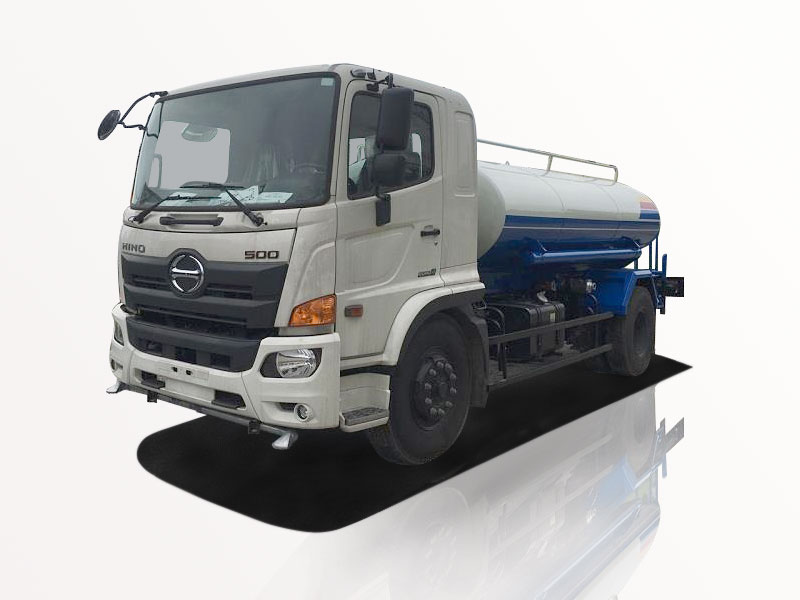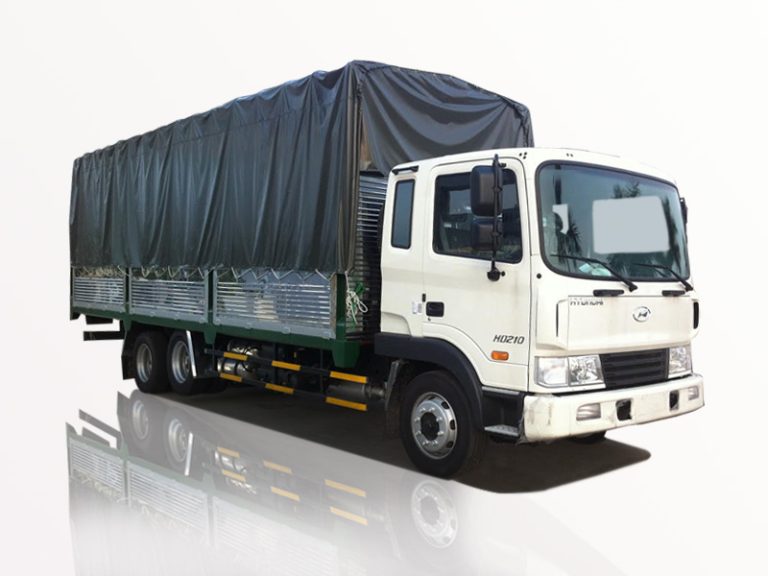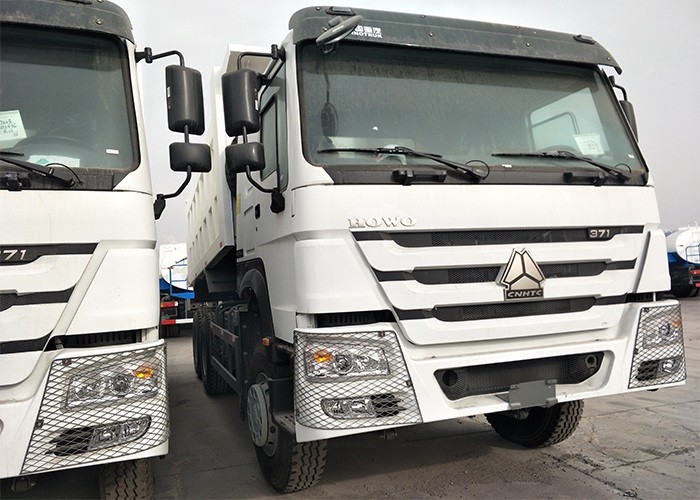If you’re in the market for vacuum trucks in Texas, you’ve arrived at the right place. Vacuum trucks are essential equipment for a variety of industries, including municipal, construction, and environmental services. This article will guide you through everything you need to know about buying a vacuum truck in Texas, from types available to considerations for purchase, including practical tips and frequently asked questions.
Understanding Vacuum Trucks
What is a Vacuum Truck?
A vacuum truck is a specialized vehicle equipped with a vacuum pump and tank designed to suction liquids and solids. They are commonly used for waste management, sewage removal, industrial cleaning, and spill response scenarios. The versatility of vacuum trucks makes them valuable assets in multiple sectors.
Types of Vacuum Trucks
| Type | Description | Common Uses |
|---|---|---|
| Standard Vacuum Trucks | Equipped with a simple tank and pump. | Waste removal, industrial clean-up. |
| Septic Tank Trucks | Designed specifically for pumping septic systems. | Residential and commercial septic tank services. |
| Industrial Vacuum Trucks | Heavy-duty units for handling hazardous materials. | Construction sites, chemical spills. |
| Hydrovac Trucks | Use high-pressure water and a vacuum system. | Excavation, potholing, and trenching. |
Factors to Consider When Buying a Vacuum Truck
1. Purpose and Application
Before purchasing a vacuum truck, determine its primary use—whether for municipal waste, industrial cleaning, or construction site excavation. Different applications demand specific features and capacities.
2. Tank Size
The capacity of the tank is another crucial factor. Larger tanks can store more waste but may also increase the vehicle’s weight, affecting its mobility. Standard sizes range from 500 to 3,000 gallons, depending on the need.
3. Engine Power and Vacuum Performance
Ensure that the vacuum truck has sufficient engine power to handle your required tasks. Consider the cubic feet per minute (CFM) rating of the vacuum pump, which indicates its ability to lift materials effectively. A higher CFM means better performance in heavy-duty applications.
4. Brand and Model Reputation
Research well-established brands known for reliable vacuum trucks. Popular manufacturers such as Vactor, Peterbilt, and Kenworth offer robust models tailored for various applications. Look for customer reviews and industry feedback.
5. New vs. Used Vacuum Trucks
Decide whether you want a new or used vacuum truck. New trucks come with warranties and the latest technology but at a higher cost. Used trucks are more affordable but require more inspection to ensure functionality.
6. Financing Options
Explore financing options that fit your budget. Some dealers offer in-house financing, while others may facilitate loans through partners. Compare interest rates and terms to find the best deal.
Where to Find Vacuum Trucks for Sale in Texas
Online Marketplaces
Online platforms are often the best place to start your search. Websites like TruckPaper, CommercialTruckTrader, and eBay offer listings from various sellers. You can filter by location, price, and model for convenience.
Local Dealers and Manufacturers
Another option is to visit local dealerships. Many specialize in heavy-duty vehicles, including vacuum trucks. They can provide personalized assistance and let you inspect vehicles before purchasing.
Auction Houses
Consider attending equipment auctions, which often feature vacuum trucks at competitive prices. Auctions can provide opportunities to purchase used equipment in good condition at lower costs.
Trade Shows and Expos
Trade shows for the construction and environmental service industries are great places to network and explore various vacuum trucks. You may find models for sale directly from manufacturers, allowing for firsthand comparisons.
Practical Buying Tips
1. Inspect Before You Buy
Always perform a thorough inspection before purchasing. Check for any signs of damage, rust, or wear and ensure that all components are in working order.
2. Request a Maintenance History
For used trucks, request the maintenance history to understand how well the vehicle has been taken care of. A lack of maintenance can lead to costly repairs down the road.
3. Take a Test Drive
Whenever possible, take the vacuum truck for a test drive. Evaluate its maneuverability, braking, and overall performance. This hands-on experience will give you a better sense of the truck’s capabilities.
4. Ask About Warranty and Support
Inquire about warranties offered on the vacuum truck. For used units, check if there are options for extended service plans. Reliable post-sale support is also essential for maintenance and repairs.
Maintenance and Care for Vacuum Trucks
Regular Maintenance Schedule
Creating a regular maintenance schedule is vital for ensuring your vacuum truck operates efficiently. This includes checking fluid levels, inspecting the vacuum system, and regularly cleaning tanks.
Essential Maintenance Tasks
- Inspect hoses for damage and replace as needed.
- Clean the tank interior regularly to prevent odor and corrosion.
- Check the vacuum pump performance periodically.
- Ensure the truck’s engine is serviced according to manufacturer recommendations.
Winterization Tips
If you plan to operate your vacuum truck in colder months, proper winterization is essential. This includes using anti-freeze solutions in the water tanks and ensuring that all lines are cleared to prevent freezing.
Regulations and Compliance in Texas
Environmental Regulations
When operating vacuum trucks in Texas, it’s crucial to comply with state regulations regarding waste disposal and environmental protection. Make sure to familiarize yourself with the local laws governing hazardous material handling and waste removal.
Licensing and Permits
Ensure that you or your operators possess the necessary licenses to operate vacuum trucks. Specific permits may be required depending on the materials being transported and the areas of operation.
FAQ Section
1. What are the average prices for vacuum trucks in Texas?
The price of vacuum trucks in Texas can range widely, with new models costing anywhere from $100,000 to over $200,000, while used models can be found for $20,000 to $100,000, depending on age and condition.
2. Do I need a special license to operate a vacuum truck?
Yes, operating a vacuum truck typically requires a commercial driver’s license (CDL) due to the size and weight of the vehicles.
3. Can I finance a vacuum truck through a dealership?
Many dealerships offer financing options, including loans and leases, making it easier for you to acquire a vacuum truck with manageable monthly payments.
4. How often should I maintain my vacuum truck?
Routine maintenance should be performed at least every 3,000 to 5,000 miles, or more frequently depending on usage. Regular checks for fluid levels, tank cleanliness, and system operations are essential to keep the truck in optimal condition.
5. What is the best brand of vacuum truck in the market?
Some of the top brands known for their quality and performance include Vactor, Peterbilt, and Freightliner, each offering various models that cater to different needs and budgets.
6. Are vacuum trucks environmentally friendly?
When operated correctly, vacuum trucks can be environmentally friendly, especially those designed for waste management and spill clean-up, as they help in the proper disposal and treatment of hazardous materials.



